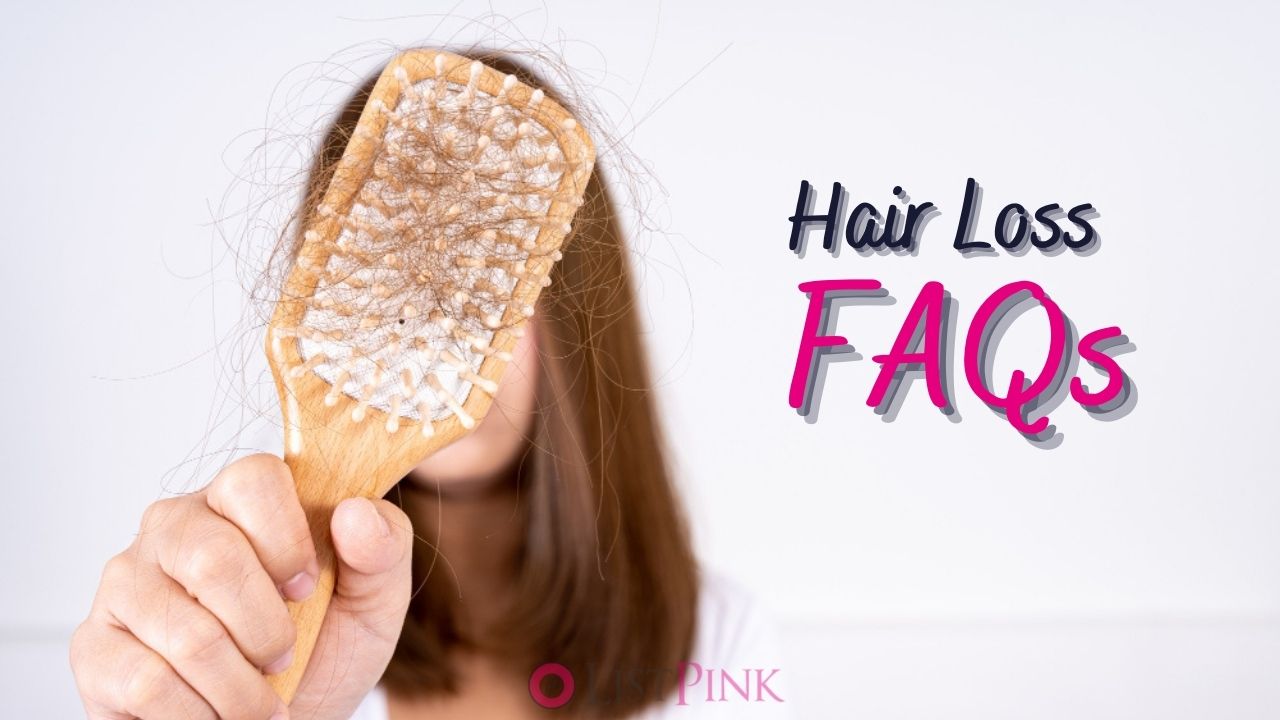Hair loss is a common problem in both men and women. While hair loss can be genetic, there are other factors that can also trigger hair fall. In this hair FAQs section, we have answered your most common questions on hair loss and hair growth.

Q: Is it possible to Regrow Lost Hair?
A: Absolutely. Many people are surprised to learn that the hair that is lost is not actually gone forever. This is because, after the hair falls out, the follicle remains alive. And, because the follicle remains alive, the hair can be made to grow again.
Q: What Causes Hair Loss?
A: There are a number of reasons for hair loss. Some of the most common reasons for hair loss include:
- Genetics.
- Hormonal changes. For instance DHT, a natural hormone that blocks hair growth.
- Certain medications
- Stress
- Chemotherapy
- Alopecia areata
- Trauma
- Traction alopecia
- Lupus
- Improper diet.
- Harmful chemicals and hair cosmetics.
- Environmental factors including radiation, sun exposure, and water quality.
Although it exists for a very good reason, the problem is that the hormone can have an adverse side effect. This side effect can cause hair follicles to shrink and hair to fall out.
Q: What is the Link Between Baldness and Thyroid Disease?
A: One of the more recent and surprising discoveries about hair loss and hair growth is that thyroid disease can be a cause of hair loss.
The link between thyroid disease and hair loss is not well understood. Studies show that some people who suffer from hair loss also suffer from the hypothyroid disease. This suggests that the thyroid hormone (a chemical produced by the thyroid gland) is important to hair growth.
Q: Is There a Cure for Hair Loss?
A: There doesn’t seem to be a direct cure for hair loss. However, there are many effective treatments that can help stop and even reverse hair loss for some people. Certain home remedies like onion juice are used by many.
Q: Is Hair Loss Genetic?
A: Hair loss can both be genetic and the result of damage to your hair. For example, if your mother and grandmother both lost a lot of hair, there’s a good chance you will too.
However, if you develop hair loss due to stress, diet, and environmental factors, then you likely won’t pass it on to your kids.
Hair loss is genetic in the sense that if your mother had it, you have a 50% chance of developing it. But, this doesn’t mean you’ll lose hair– it just means you have a 50% chance of experiencing hair loss.
Q: How Do I Know if I Need a Hair Transplant?
A: If you’re experiencing hair loss, you should consult a professional. Because the causes of hair loss are extremely varied, it’s difficult to generalize as to whether you should get a hair transplant. However, the important thing is to be able to recognize if you’re experiencing hair loss.
If you’re experiencing patchy hair loss, or if your hair is thinning on the top of your head, then there’s a good chance that you could benefit from a hair transplant procedure.
Q: What Is the Difference Between Follicular Unit Extraction (FUE) and Follicular Unit Transplantation (FUT)?
A: The two most common types of hair transplant procedures are Follicular Unit Extraction (FUE) and Follicular Unit Transplantation (FUT). The difference between these two hair transplant procedures is that FUT removes an entire strip of hair-bearing skin (the Donor site) and the hair is then transplanted into the bald or thinning area (the Recipient site).
FUE, on the other hand, is a more refined hair transplant procedure. Rather than removing entire strips of hair-bearing skin (the Donor site), only the hair follicles are extracted (the Follicular Units). These hair follicles are then transplanted into the bald or thinning area (the Recipient site).
Q: What is Premature Hiar loss?
A: Premature hair loss is when you start losing your hair before the age of 30. Because age-related hair fall is generally experienced at later ages, any loss of hair before 30 is considered premature. Here is more on premature hair loss.
